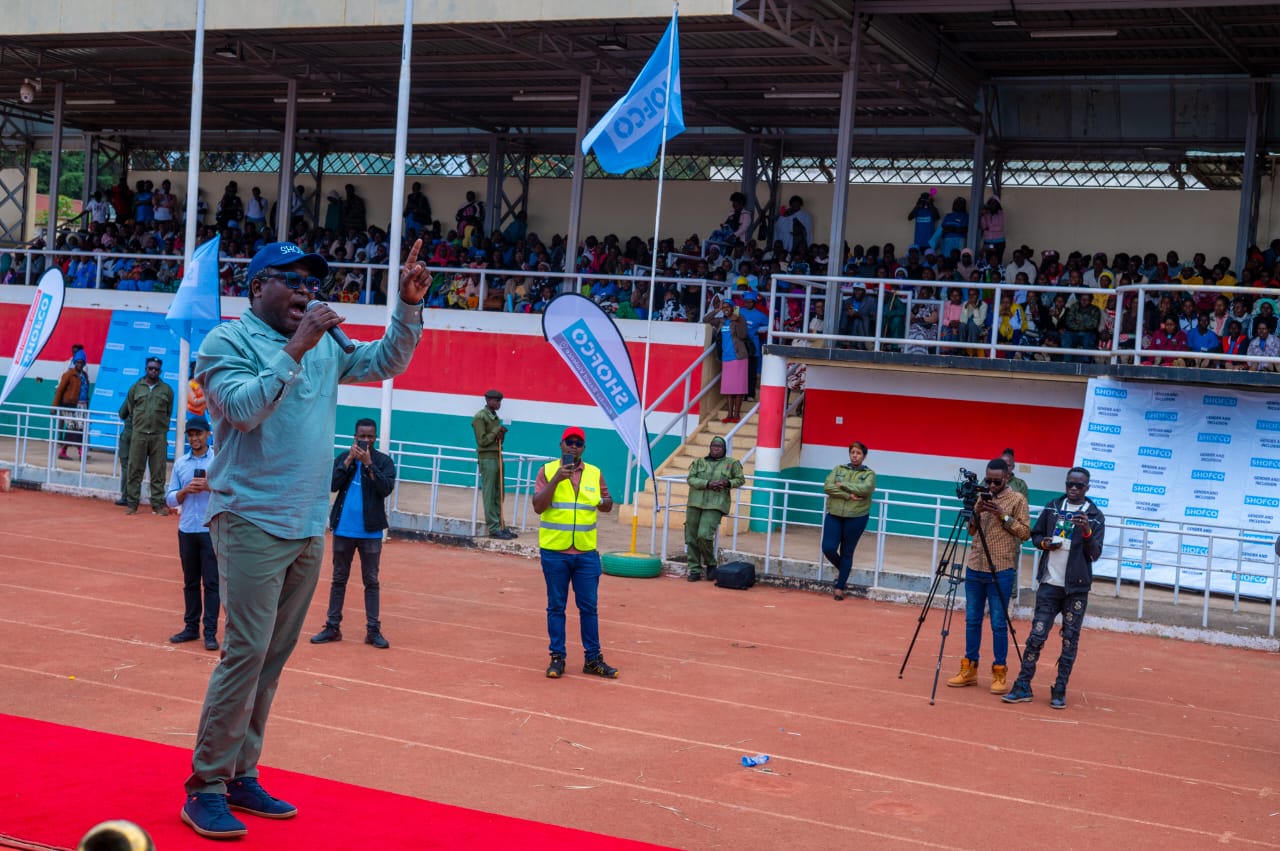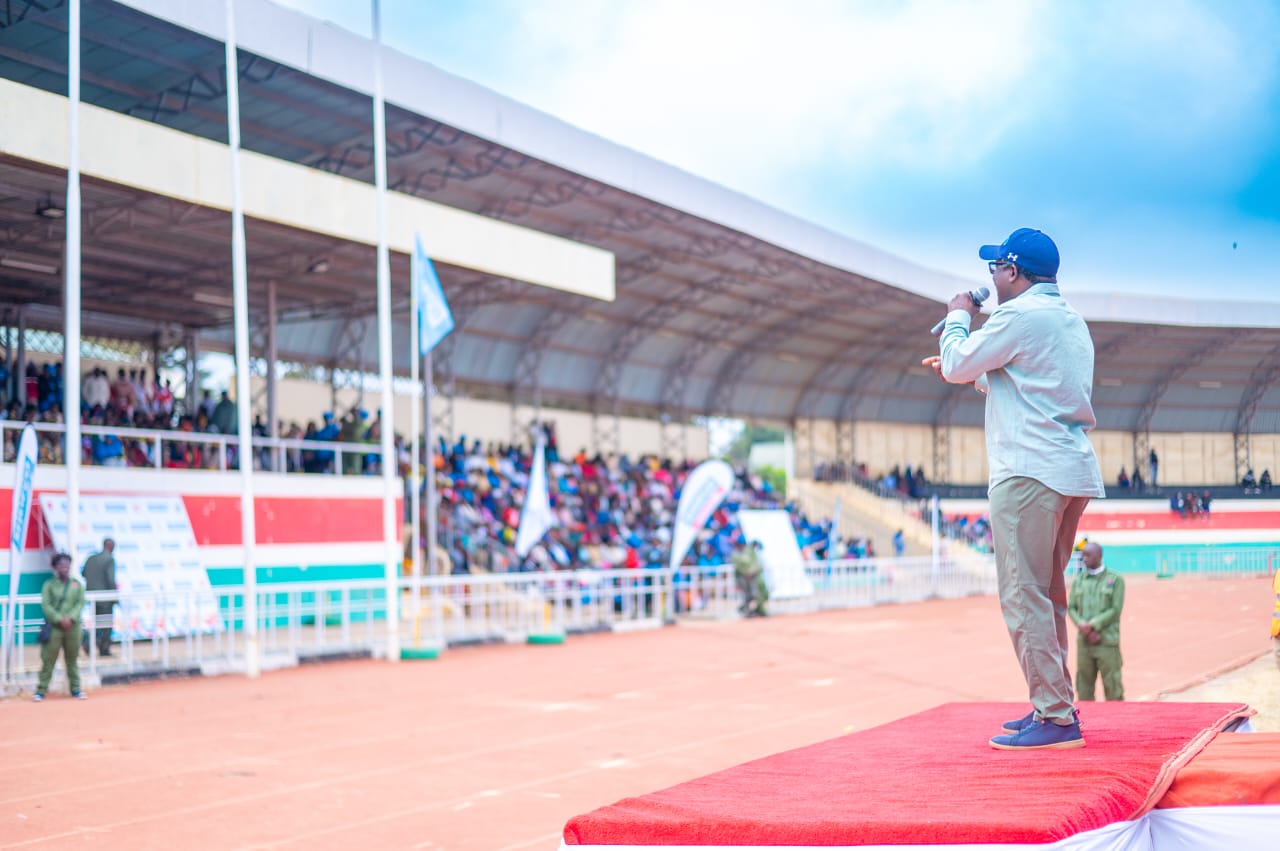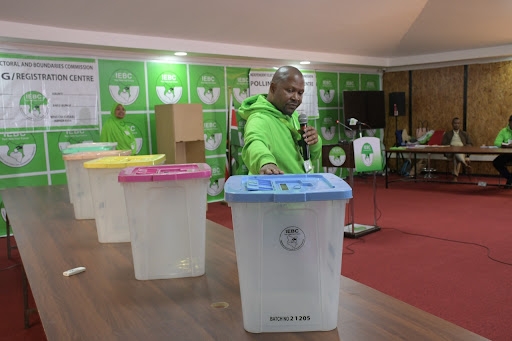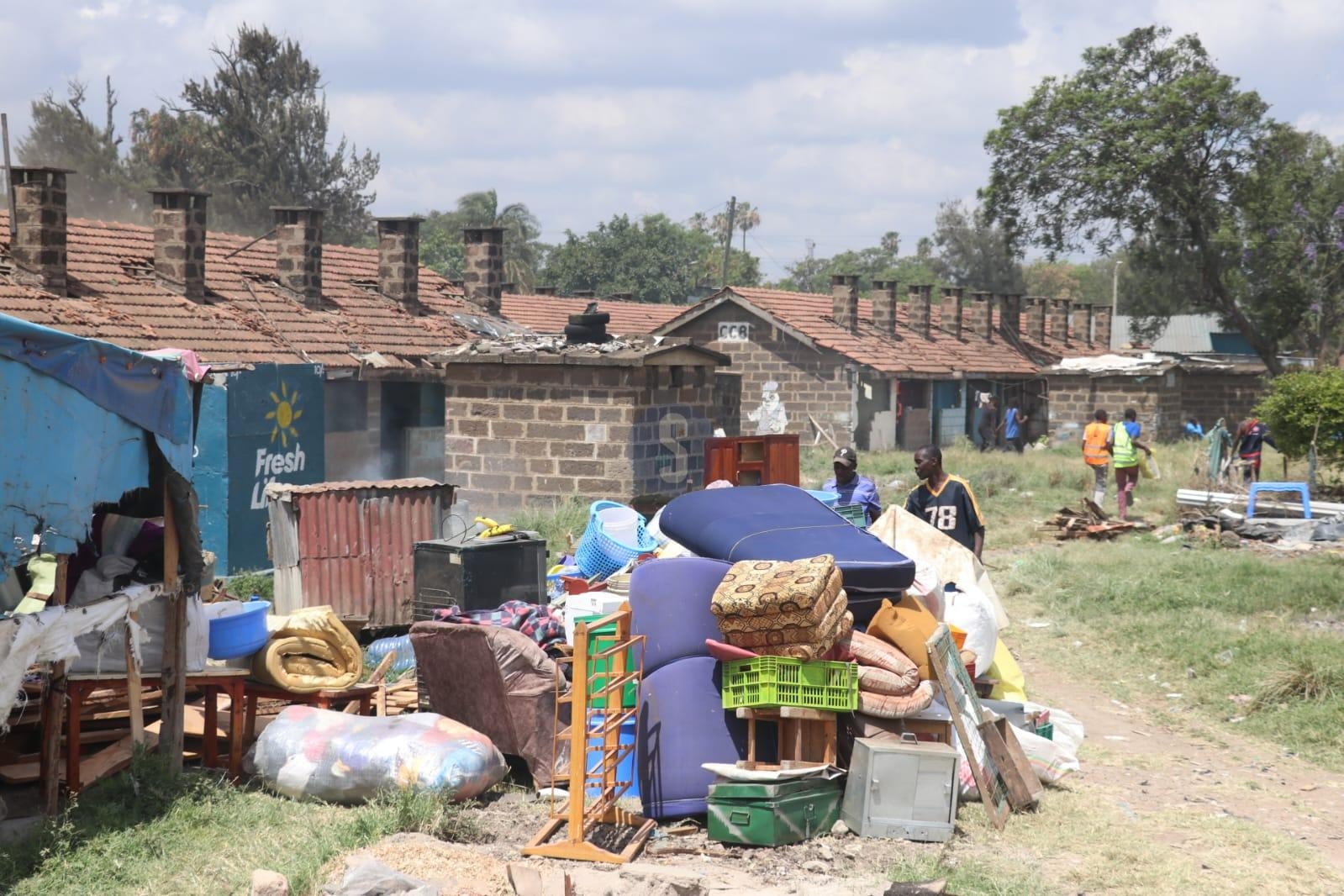

Meru County and Shining Hope for
Communities (SHOFCO) have announced a wide-reaching initiative to combat
Gender-Based Violence (GBV), aiming to bring both immediate support to
survivors and long-term societal change.
The partnership, unveiled at Kinoru
Stadium on Friday before over 6000 community members, SHOFCO and the county
will roll out safe spaces, legal aid clinics, mobile response teams, and
grassroots sensitization campaigns across the county's wards.
This comes in response to a
disturbing rise in GBV cases across Meru, especially in rural areas where
survivors often face stigma and lack access to support services.
SHOFCO Founder and CEO Dr. Kennedy
Odede underscored the
grassroots spirit of the initiative:
“When a
girl is beaten, raped, or denied education, the entire community suffers. At
SHOFCO, we believe real change does not come from Nairobi offices, it comes
from the people.
“From
mothers, from boda boda riders, from chiefs, and especially from youth. This
partnership is about giving communities the tools to protect their own. It is
about ensuring every woman can walk freely without fear,” Dr. Odede said.
The SHOFCO boss said he is glad that the county has agreed to partner with his organization to deal with GBV menace that is threatening to ruin the lives of women in the county.

“We have
seen what is possible when government and grassroots unite. In Kibera, we built
the first gender desk in the slum. Now in Meru, we will train local champions,
and build a safe house to ensure that every survivor finds a safe space as we
deal with perpetrators using the justice system,” he stated.
A 2024 Ipas Africa Alliance report
reveals that approximately 88% of women in Meru have experienced some form of
GBV, with nearly 66.7% reporting incidents within the past year, and around
34.9% of GBV cases involving killings.
Between January 2024 and May 15,
2025, the police recorded 336 GBV cases in Tigania East (62), Imenti South (59)
Buuri East (44) and Tigania West (30) among other sub counties.
Meru is also a hotspot for teenage pregnancies
and defilement with over 9,500 teen mothers recorded in 2023 alone and from
January to May 2025, about 1,700 pregnancies were reported in Igembe Central.
Speaking during the event at Kinoru
Stadium, Governor Muthuma M'Ethingia condemned the silence and normalization of
violence against women and girls.
“Our
partnership with SHOFCO is not just symbolic, it is action-oriented,
community-led, and survivor-centered.
“No woman
or girl should feel unsafe in her home, her school, or her market. As a
government, we are putting our budget, our laws, and our voice behind this
commitment,” he stated.
The Governor emphasized that the new
framework will be integrated into existing county services, including health
centers, schools, and policing structures, with trained GBV focal points and
caseworkers stationed at sub-county levels.
Governor Muthuma implored on SHOFCO
to make Meru a model for other counties on how to fight GBV.
“If we
succeed in Meru, and we will, it will be because we put people first. Let every
county in Kenya watch what happens when women are protected, children are
empowered, and survivors are heard. Let this be our legacy.
“With
SHOFCO on board, I’m sure we will make great strides and I promise to put in
resources to fight the vice.
During
the event at Kinoru Stadium, SHOFCO, under its Shofco Urban Network (SUN)
program elected community leaders who will advocate for change in the county.
The leaders elected will act as a link between the community and the government.

SHOFCO
currently has over 40,000 SUN members in Meru.
SUN has
over six million members countrywide.
Buuri MP Mugambi Rindikiri called on men to take
ownership of ending the violence.
“We must speak out, stand up, and stop our
perpetrators from causing pain. We need real conversations in our barazas, our
churches, and our boda sheds,” he said.
Former Meru Woman Representative Florence Kajuju
expressed deep frustration over the epidemic of teen pregnancies and
defilement.
“I have seen girls carrying babies when they should be
carrying books. This is not just a crisis. It is a betrayal of our daughters.”
“As leaders, we must legislate, allocate, and educate.
We need a Meru where girls grow up, not give up,” she said.


















